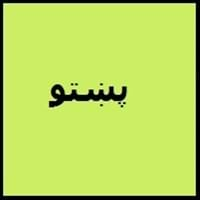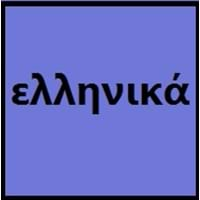Countries
Afganistan
Cyprus, European Union, Greece
National Language
Afganistan, Pakistan, Pashtun diaspora
Albania, Cyprus, Egypt, France, Greece, Italy, Romania, Turkey, Ukraine
Second Language
Not spoken in any of the countries
Roman Empire
Speaking Continents
Asia
Asia, Europe
Minority Language
Pakistan
Albania, Armenia, Australia, Hungary, Italy, Romania, Turkey, Ukraine
Regulated By
Academy of Sciences of Afghanistan, Pashto Academy (Pakistan)
Center for the Greek language (Κέντρον Ελληνικής Γλώσσας)
Interesting Facts
- Pashto language is originated in the regions of Paktika and Paktia areas of Afghanistan.
- The first Pashto poem was written in the 7th century.
- Greek is the longest documented language of all the Indo-European Langauges.
- The official language of education in the Roman Empire was Greek.
Similar To
Persian and Balochi Languages
Armenian
Derived From
Not Available
Latin
Alphabets in
Pashto-Alphabets.jpg#200
Greek-Alphabets.jpg#200
Scripts
Arabic
Arabic, Latin
Writing Direction
Right-To-Left, Horizontal
Left-To-Right, Horizontal
Hello
(salaam) سلام
γεια σας (geia sas)
Thank You
(manana) مننه (tashakor) تشكر
ευχαριστώ (ef̱charistó̱)
How Are You?
(ta sanga yee?) څنگه يې؟
πώς είσαι (pó̱s eísai)
Good Night
(shpa mo pa kheyr) شپه مو په خير
Καληνυχτα (Kali̱nychta)
Good Evening
(maakhaam mo pa kheyr) ماښام مو په خير
καλησπέρα (kali̱spéra)
Good Afternoon
(wradz mo pa kheyr) ورځ مو په خير
Καλὸ ἀπόγευμα (Kaló apóyevma)
Good Morning
(sahr pikheyr) سحر پخير
καλημέρα (kali̱méra)
Please
(lotfan) لطفا
παρακαλώ (parakaló̱)
Sorry
(zeh mutaasif yum) زه هتاسف يم
συγνώμη (sygnó̱mi̱)
Bye
(da khoday pa amaan) دخداى په امان
αντίο (antío)
I Love You
زه ستا سره مينه کوم (za la ta sara meena kawom)
Σε αγαπώ (Se agapó̱)
Excuse Me
(bakhena ghwaarum) بخښنه غواړم
Με συγχωρείτε! (Me synhoríte)
Dialect 1
Central Pashto
Cappadocian Greek
Where They Speak
Afganistan, Pakistan
Greece
Dialect 2
Northern Pashto
Griko
Where They Speak
Afganistan, Pakistan
Italy
Dialect 3
Wanetsi
Mariupol
Where They Speak
Afganistan, Pakistan
Ukraine
How Many People Speak
Not Available
Native Name
(paṧto) پښتو
ελληνικά
Alternative Names
Kandahar Pashto, Qandahar Pashto, Southwestern Pashto, Pushto
Ellinika, Graecae, Grec, Greco, Neo-Hellenic, Romaic
French Name
pachto
grec moderne (après 1453)
German Name
Paschtu
Neugriechisch
Pronunciation
[ˈpəʂt̪oː], [ˈpʊxt̪oː]
[eliniˈka]
Ethnicity
Pashtun
Greeks or Hellenes
Language Family
Indo-European Family
Indo-European Family
Subgroup
Indo-Iranian
Hellenic
Branch
Iranian
Not Available
Early Forms
No early forms
Proto-Greek, Mycenaean Greek, Ancient Greek, Koine Greek and Medieval Greek
Standard Forms
Central Pashto, Northern Pashto, Yusufzai Pashto, Southern Pashto
Modern Greek
Signed Forms
Not Available
Greek Sign Language
Scope
Individual
Individual
ISO 639 6
Not Available
ells
Glottocode
pash1269
gree1276
Linguasphere
58-ABD-a
56-AAA-a
Language Type
Living
Living
Language Linguistic Typology
Subject-Object-Verb
Subject-Verb-Object
Language Morphological Typology
Fusional
Fusional, Synthetic
Pashto and Greek Speaking population
Pashto and Greek speaking population is one of the factors based on which Pashto and Greek languages can be compared. The total count of Pashto and Greek Speaking population in percentage is also given. The percentage of people speaking Pashto language is 0.58 % whereas the percentage of people speaking Greek language is 0.18 %. When we compare the speaking population of any two languages we get to know which of two languages is more popular. Find more details about how many people speak Pashto and Greek on Pashto vs Greek where you will get native speakers, speaking population in percentage and native names.
Pashto and Greek Language Codes
Pashto and Greek language codes are used in those applications where using language names are tedious. Pashto and Greek Language Codes include all the international language codes, glottocodes and linguasphere.





